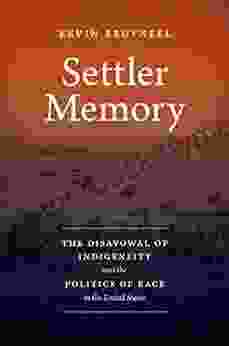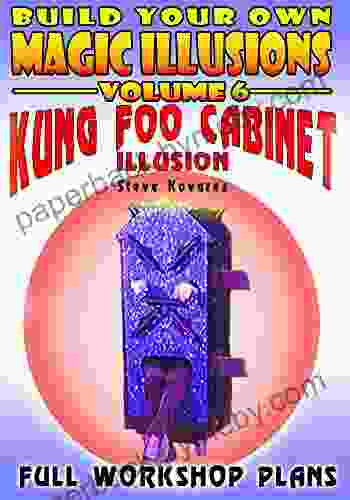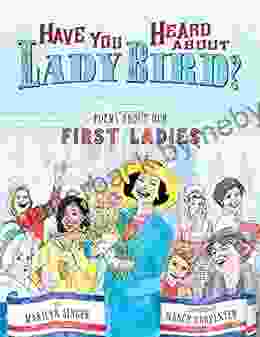Unveiling the Shadow History: Exploring "The Disavowal of Indigeneity and the Politics of Race in the United States"

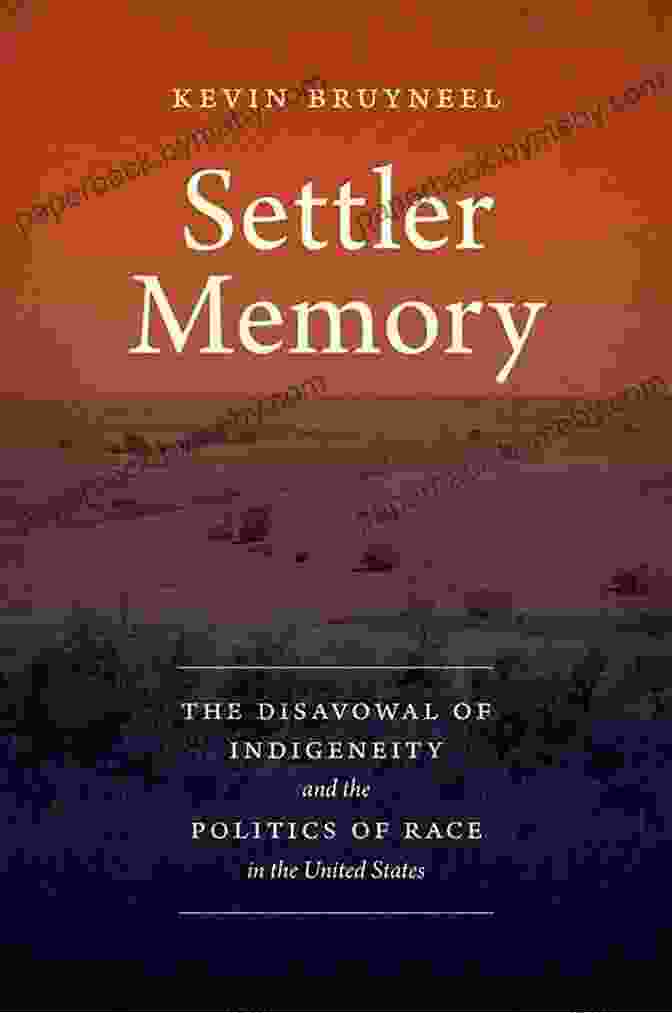
In the labyrinthine tapestry of American history, the narrative of Indigeneity has been obscured and distorted, its threads deliberately unraveled to weave a dominant narrative that marginalizes Native American experiences. Professor Jodi A. Byrd's groundbreaking work, "The Disavowal of Indigeneity and the Politics of Race in the United States," meticulously unravels this historical tapestry, illuminating the complex interplay between the disavowal of Indigeneity and the construction of racial hierarchies in the United States.
5 out of 5
| Language | : | English |
| File size | : | 2582 KB |
| Text-to-Speech | : | Enabled |
| Screen Reader | : | Supported |
| Enhanced typesetting | : | Enabled |
| Word Wise | : | Enabled |
| Print length | : | 244 pages |
Disavowing Indigeneity: A Calculated Erasure
The disavowal of Indigeneity, Byrd argues, is not merely an act of forgetting or ignorance but a deliberate strategy employed by white settlers to establish and maintain their dominance. This disavowal manifests itself in numerous ways:
* Legal Framework: The legal system has historically denied the inherent sovereignty of Native American nations and dismissed their claims to land and resources. * Historical Narratives: Official histories have often erased or distorted the role of Native Americans, depicting them as obstacles to progress rather than as integral members of American society. * Cultural Appropriation: Non-Native individuals and institutions have frequently appropriated Native American symbols and practices, commodifying and decontextualizing them for their own benefit.
The Construction of Racial Hierarchies
The disavowal of Indigeneity has played a pivotal role in constructing and perpetuating racial hierarchies in the United States. By denying the legitimacy of Native American claims, white settlers established themselves as the "default" race and justified their conquest and oppression of other non-white groups.
* The "Indian as Savage" Stereotype: Native Americans were often portrayed as uncivilized and inferior, reinforcing the idea that white superiority was necessary for their "advancement." * The "Melting Pot" Myth: The dominant narrative of a melting pot society ignored the unique experiences and contributions of Native Americans, promoting a false sense of assimilation and eroding their distinct cultural identities. * Racialized Oppression: The disavowal of Indigeneity created a precedent for the racialization of other marginalized groups, justifying their subordination and exclusion.
Reclaiming Indigeneity: A Path to Reconciliation
Byrd's work challenges the dominant racial narrative and empowers Native American voices. She calls for a radical rethinking of American history, one that acknowledges the profound impact of Indigeneity on the nation's past, present, and future.
* Decolonizing History: Recognizing and rectifying the distortions in historical narratives is crucial for dismantling the legacy of colonialism and its harmful effects on Native American communities. * Honoring Treaties and Sovereignty: Respecting the sovereignty of Native American nations and upholding treaty obligations is essential for building a truly just and equitable society. * Supporting Native American Self-Determination: Empowering Native Americans to govern themselves, preserve their cultures, and pursue their own visions of the future is vital for their well-being and the nation as a whole.
"The Disavowal of Indigeneity and the Politics of Race in the United States" is an indispensable work that exposes the hidden history of Indigeneity in America. By shedding light on the insidious ways in which Indigeneity has been marginalized, Byrd challenges the dominant racial narrative and provides a roadmap for reconciliation and a more just future. This book is not only a valuable historical analysis but also a powerful call to action to confront the legacies of colonialism and build a truly inclusive and equitable society.
5 out of 5
| Language | : | English |
| File size | : | 2582 KB |
| Text-to-Speech | : | Enabled |
| Screen Reader | : | Supported |
| Enhanced typesetting | : | Enabled |
| Word Wise | : | Enabled |
| Print length | : | 244 pages |
Do you want to contribute by writing guest posts on this blog?
Please contact us and send us a resume of previous articles that you have written.
 Book
Book Novel
Novel Page
Page Chapter
Chapter Text
Text Story
Story Genre
Genre Reader
Reader Library
Library Paperback
Paperback E-book
E-book Magazine
Magazine Newspaper
Newspaper Paragraph
Paragraph Sentence
Sentence Bookmark
Bookmark Shelf
Shelf Glossary
Glossary Bibliography
Bibliography Foreword
Foreword Preface
Preface Synopsis
Synopsis Annotation
Annotation Footnote
Footnote Manuscript
Manuscript Scroll
Scroll Codex
Codex Tome
Tome Bestseller
Bestseller Classics
Classics Library card
Library card Narrative
Narrative Biography
Biography Autobiography
Autobiography Memoir
Memoir Reference
Reference Encyclopedia
Encyclopedia Patty Duke
Patty Duke Lewis F Day
Lewis F Day Kimberly Schlapman
Kimberly Schlapman Ken Light
Ken Light Mary E Lyons
Mary E Lyons Natasha Sims
Natasha Sims Sebastien De Castell
Sebastien De Castell Marc Lewis
Marc Lewis Ken Retallic
Ken Retallic Kensuke Okabayashi
Kensuke Okabayashi Rian Hughes
Rian Hughes Thubten Chodron
Thubten Chodron Kevin A Morrison
Kevin A Morrison Kevin Marx
Kevin Marx Khanh Van Le Bucklin
Khanh Van Le Bucklin Lee Jackson
Lee Jackson Kimberlee Yolanda Williams
Kimberlee Yolanda Williams Robert J Sweet
Robert J Sweet Wei Yen
Wei Yen Paula Helfrich
Paula Helfrich
Light bulbAdvertise smarter! Our strategic ad space ensures maximum exposure. Reserve your spot today!

 Jerome BlairJourney into the Heart of a Remarkable African Culture: Discover "The Talking...
Jerome BlairJourney into the Heart of a Remarkable African Culture: Discover "The Talking...
 Milan KunderaDive into the Azure Realm: Ken Schultz Field Guide to Saltwater Fish - Your...
Milan KunderaDive into the Azure Realm: Ken Schultz Field Guide to Saltwater Fish - Your... Mike HayesFollow ·3.5k
Mike HayesFollow ·3.5k Angelo WardFollow ·6k
Angelo WardFollow ·6k Oliver FosterFollow ·2k
Oliver FosterFollow ·2k Truman CapoteFollow ·11.5k
Truman CapoteFollow ·11.5k Chase SimmonsFollow ·2.2k
Chase SimmonsFollow ·2.2k Benji PowellFollow ·19.4k
Benji PowellFollow ·19.4k Jean BlairFollow ·11k
Jean BlairFollow ·11k Asher BellFollow ·2.9k
Asher BellFollow ·2.9k
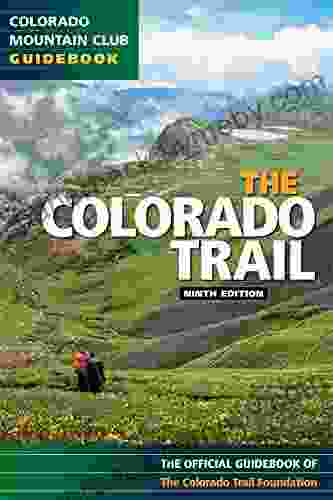
 Isaac Asimov
Isaac AsimovEmbark on an Epic Adventure: The Colorado Trail 9th...
Unveiling the Treasures of the Colorado...

 Clinton Reed
Clinton ReedUltimate Football Heroes: Uncover the Gridiron Greatness...
Enter the World...

 Ibrahim Blair
Ibrahim BlairUnveiling the Secrets of Stolen Focus: A Journey to...
In today's relentless digital...
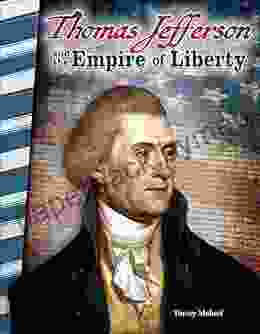
 Colt Simmons
Colt SimmonsRediscover the Founding Father's Vision: Thomas Jefferson...
Immerse Yourself in the Unedited Words of...

 Juan Butler
Juan ButlerExcel in Language Learning: The Ultimate Self-Study...
Unlock Your Language Potential with Our...
5 out of 5
| Language | : | English |
| File size | : | 2582 KB |
| Text-to-Speech | : | Enabled |
| Screen Reader | : | Supported |
| Enhanced typesetting | : | Enabled |
| Word Wise | : | Enabled |
| Print length | : | 244 pages |


